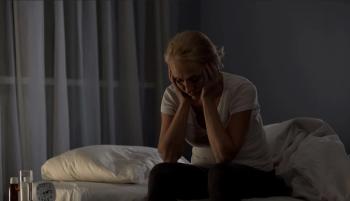
APSS: After Katrina, Sleepless Men in New Orleans
MINNEAPOLIS -- Insomnia among men was an apparent sequel to Hurricane Katrina in New Orleans, researchers said here.
MINNEAPOLIS, June 13 -- Insomnia among men was an apparent sequel to Hurricane Katrina in New Orleans, researchers said here.
"Our data shows an increase in the number of male patients and insomnia complaints after Katrina, despite an overall decrease in initial sleep medicine evaluations," said psychiatrist Denise Sharon, M.D., Ph.D., of Tulane and the Sleep Medicine Center of the Gulf Coast in Destrehan, La.
In a poster presentation at the Associated Professional Sleep Societies meeting, she said that in the four months before Katrina hit the city, 21 patients had sought medical treatment for insomnia, five of them men. In the four months immediately after Katrina, with a sharply reduced population, 13 patients sought medical help for insomnia, six of them men.
"We aren't sure why we are seeing such a high percentage of men now compared with before the storm hit," she said.
However, Dr. Sharon suggested:
- More men than women are engaged in the cleanup efforts. The constant work in a polluted environment might be a factor in their sleep habits.
- Men who came back to New Orleans with their families may have returned not realizing that their work was no longer there -- their place of business destroyed by the hurricane. She said these men actually now had time to come to the doctor's office for long-delayed treatment.
- The fact that these men had lost homes, lost jobs, or lost family members, could have caused them to have sleep disturbances.
The change in demographics for insomnia appeared to be a long-term phenomenon, Dr. Sharon revealed. She showed that in the period from Jan. 1, 2005 until August 28, 2005, there were 29 patients at the center, located about 10 miles west of New Orleans, who sought treatment for insomnia. Only seven of those patients were men -- less than 25%.
In the period from Jan. 1, 2006 to August 28, 2006, there were 22 patients with insomnia complaints and eight were men -- more than one-third.
Dr. Sharon said the numbers are too small for statistical significance, but, she added, the percentages appeared meaningful.
She said she was concerned about the fate of patients with obstructive sleep apnea, some of them older and sicker. Before the storm, she was treating 49 patients for sleep apnea. In the year after the storm there were just 30 of these patients.
Dr. Sharon said she was fearful that many of those patients were either lost in the storm, or died after the storm as a consequence of age and loss of support from friends and family -- also lost or evacuated due to Katrina.
"This review included only a small number of patients," Dr. Sharon said. "A broader review including all of the sleep centers in the affected and the surrounding area is needed to provide clearer information about changes in sleep complaints after a natural disaster."
Newsletter
Enhance your clinical practice with the Patient Care newsletter, offering the latest evidence-based guidelines, diagnostic insights, and treatment strategies for primary care physicians.
































































































































